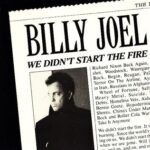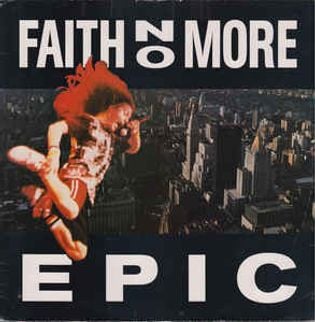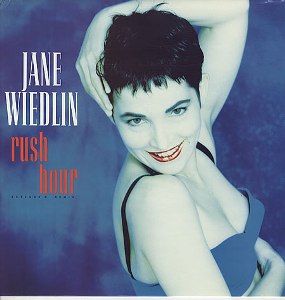 Billy Joel’s “We Didn’t Start the Fire,” released in 1989 on his album Storm Front, stands as one of the most ambitious and culturally significant songs of his career, and arguably one of the most instantly recognizable chronicles of 20th-century history in popular music. Unlike conventional pop songs that focus on personal emotion, relationships, or abstract themes, “We Didn’t Start the Fire” functions as a sweeping catalog of historical, political, and cultural events spanning from Joel’s birth in 1949 to the late 1980s. With its relentless tempo, rapid-fire delivery, and encyclopedic lyrics, the song captures the essence of a period marked by social upheaval, technological innovation, and global transformation. Joel’s ability to condense decades of history into a musical form that is simultaneously catchy and thought-provoking highlights both his songwriting skill and his unique position as an artist capable of blending popular music with social commentary.
Billy Joel’s “We Didn’t Start the Fire,” released in 1989 on his album Storm Front, stands as one of the most ambitious and culturally significant songs of his career, and arguably one of the most instantly recognizable chronicles of 20th-century history in popular music. Unlike conventional pop songs that focus on personal emotion, relationships, or abstract themes, “We Didn’t Start the Fire” functions as a sweeping catalog of historical, political, and cultural events spanning from Joel’s birth in 1949 to the late 1980s. With its relentless tempo, rapid-fire delivery, and encyclopedic lyrics, the song captures the essence of a period marked by social upheaval, technological innovation, and global transformation. Joel’s ability to condense decades of history into a musical form that is simultaneously catchy and thought-provoking highlights both his songwriting skill and his unique position as an artist capable of blending popular music with social commentary.
The song opens with a simple, driving piano riff that immediately establishes urgency. Joel’s piano work throughout “We Didn’t Start the Fire” is both rhythmic and percussive, functioning as the engine that propels the narrative forward. The riff is repetitive yet effective, providing a musical anchor amid the song’s whirlwind of lyrical references. Unlike his more melodic ballads or rock-infused tracks, this song’s instrumentation prioritizes momentum over harmonic complexity, reflecting the frenetic pace of historical events it chronicles. The arrangement is intentionally minimalistic, emphasizing Joel’s vocals and the lyrical content while using guitar, bass, and drums to create a sense of propulsion. This production choice reinforces the feeling of urgency, capturing the listener’s attention and immersing them in a continuous stream of references.
Billy Joel’s vocal performance on “We Didn’t Start the Fire” is distinctive for its rapid enunciation and almost rhythmic chant-like quality. Joel’s delivery is precise, ensuring that the listener can catch each of the dozens of historical references embedded in the song. This articulation is essential to the song’s impact, as the sheer volume of names, events, and cultural touchstones would be incomprehensible if delivered in a more languid style. By employing a brisk, almost percussive vocal cadence, Joel transforms his voice into a vehicle for storytelling, turning the song into both a musical and educational experience. The delivery is intense yet controlled, reflecting a balance between entertainment and didactic purpose.
Lyrically, “We Didn’t Start the Fire” is unparalleled in its density and breadth. The song begins in 1949, the year of Joel’s birth, with references to post-World War II politics, cultural milestones, and early Cold War tensions, including figures such as Harry Truman and Joe McCarthy, and events like the Red Scare and the Korean War. From the very first line, the song establishes a pattern of cataloging major events and personalities in chronological order, weaving together political, cultural, scientific, and entertainment history. Joel continues this rapid-fire listing throughout the song, touching on pivotal moments and figures such as the launch of Sputnik, Elvis Presley’s rise, the Vietnam War, civil rights movements, space exploration, political scandals, and shifts in popular culture. The effect is both dizzying and mesmerizing, as listeners are carried through nearly four decades of transformative events in a continuous lyrical torrent.
Thematically, the song reflects a tension between generational responsibility and historical inevitability. The chorus, with the repeated line “We didn’t start the fire / It was always burning / Since the world’s been turning,” functions as a statement on human continuity, suggesting that societal turmoil, conflict, and transformation are perpetual forces beyond any one individual’s control. Joel positions himself and his generation not as initiators of historical chaos but as inheritors of ongoing events. This perspective adds depth to the song, transforming it from a mere recitation of events into a reflection on human history, continuity, and the cyclical nature of societal challenges. The chorus provides a brief but powerful moment of respite amidst the rapid lyrical pacing, offering both thematic clarity and melodic grounding.
The song’s structure is integral to its effectiveness. By employing a repetitive verse-chorus format, Joel balances the overwhelming density of information with a familiar musical anchor. The verses function as fast-moving vignettes of history, while the chorus offers a unifying refrain that contextualizes the events and reinforces the song’s central message. This structure allows the listener to absorb an extraordinary amount of information without becoming lost, creating a rhythmic tension that mirrors the historical upheaval described in the lyrics. The verses themselves employ internal rhyme, alliteration, and rhythmic pacing, turning the recitation of names and events into a musical performance that is both engaging and intellectually stimulating.
One of the most remarkable aspects of “We Didn’t Start the Fire” is its ability to weave together disparate historical and cultural threads into a coherent narrative. Joel references political leaders, artists, athletes, scientists, and pop culture icons with equal weight, highlighting the interconnectedness of events and figures across domains. For example, in a single line, he can juxtapose a political scandal with a musical revolution, demonstrating how cultural and political developments coexist and influence each other. This blending of high- and low-culture references, along with global and local events, underscores the song’s comprehensive approach to history and reflects Joel’s awareness of the multifaceted nature of human experience.
Musically, the song’s instrumentation supports the narrative without overwhelming it. The piano is central, providing rhythm and momentum, while drums and bass reinforce the driving, unrelenting energy. Guitar lines appear sporadically, adding color and emphasis without detracting from the lyrical density. The production, handled with clarity and focus, ensures that each word is intelligible, making the song function almost like a historical lecture set to pop-rock accompaniment. This careful balancing act—creating a musical backdrop that energizes while allowing lyrics to dominate—is a key reason for the track’s enduring appeal.
“We Didn’t Start the Fire” also benefits from Joel’s clever use of phrasing and repetition. Each verse contains multiple clauses, often linked by commas or conjunctions, which accelerates the pace and mimics the rapid unfolding of historical events. The technique is reminiscent of a stream-of-consciousness approach, but with meticulous attention to rhythm and rhyme. The repetition of the chorus after each verse provides a musical and conceptual anchor, reminding listeners that despite the chaos, there is a continuum that links generations and historical moments. This interplay between dense, rapid verses and repeated choruses ensures that the song is both memorable and intellectually engaging.
The cultural impact of “We Didn’t Start the Fire” has been significant and long-lasting. Upon release, the song resonated with audiences for its unique approach to storytelling, combining entertainment with education in a format that was unprecedented in mainstream pop music. It became a hit on radio and MTV, reaching audiences who may not have been familiar with all the events referenced, while simultaneously encouraging listeners to explore the history behind the names and events. The song has since been used in educational settings, quizzes, and pop culture references, demonstrating its dual role as both entertainment and historical primer. Its lasting popularity attests to the power of music as a medium for conveying information and generating curiosity.
The song also showcases Joel’s ability to merge pop sensibilities with intellectual ambition. While the track is musically accessible, with catchy chord progressions and a memorable chorus, its lyrical density challenges listeners to engage actively. This dual appeal—immediate musical enjoyment coupled with intellectual engagement—makes the song both fun and meaningful, broadening its audience and reinforcing Joel’s reputation as a versatile and thoughtful songwriter. Unlike many pop hits of its era, “We Didn’t Start the Fire” demands attention, reflection, and sometimes repeated listening, rewarding those who invest effort with a deeper appreciation of both music and history.
Interestingly, the song’s format has influenced popular culture in ways beyond music. Its rapid-fire listing of names and events has inspired parodies, adaptations, and remixes, often tailored to contemporary events or regional histories. This adaptability speaks to the song’s structural genius, demonstrating that its core concept—a fast-paced catalog of events anchored by a repetitive chorus—can be applied to diverse contexts while retaining musical and narrative effectiveness. It has become a template for combining information delivery with entertainment, illustrating the enduring relevance of Joel’s innovation.
Live performances of “We Didn’t Start the Fire” highlight the song’s energy and performative challenge. Joel’s piano work, combined with his vocal stamina, demonstrates his technical skill and showmanship. The fast tempo and intricate enunciation required make the song demanding to perform, yet Joel delivers it with precision and charisma, often encouraging audience participation. The song’s structure allows for slight variations in live settings, with extended choruses or audience call-and-response sections, which enhances its impact and demonstrates its adaptability as a live performance piece.
The historical references themselves serve as a reflection of collective memory. From political crises and assassinations to entertainment milestones and social movements, Joel’s lyrics encapsulate both the tragedies and triumphs of the postwar era. Each reference functions as a snapshot, inviting the listener to reflect on the broader context while maintaining the momentum of the musical performance. This creates a dual listening experience: one that is both immersive in its musicality and intellectually stimulating in its historical content. The song becomes a bridge between personal memory, collective history, and artistic expression, demonstrating the power of music as a vessel for knowledge and storytelling.
“We Didn’t Start the Fire” is also notable for its engagement with generational consciousness. The repeated assertion that the “fire” was always burning serves as both a reassurance and a cautionary statement, situating individual experience within the continuum of history. Joel presents history as a series of ongoing challenges and triumphs, suggesting that each generation inherits both the burdens and achievements of its predecessors. This perspective encourages listeners to consider their place within history, reflecting on both personal and collective responsibility. The chorus, simple yet profound, encapsulates this central idea, providing thematic cohesion amid the torrent of lyrical detail.
The song’s appeal also lies in its universality and relatability. While focused on events relevant to American audiences, many references resonate globally due to the international impact of politics, cultural trends, and technological developments. This global resonance, combined with Joel’s accessible pop-rock musical style, ensures that the song can be appreciated by diverse audiences, transcending national and generational boundaries. Its enduring presence on radio, streaming platforms, and cultural discourse attests to its continued relevance and impact.
In conclusion, Billy Joel’s “We Didn’t Start the Fire” is a remarkable achievement in both music and cultural commentary. Its rapid-fire lyrics, relentless tempo, and precise vocal delivery create an immersive and compelling musical experience, while its sweeping catalog of historical events offers an unprecedented chronicle of modern history. The song’s combination of accessibility, intellectual engagement, and cultural resonance ensures that it remains relevant decades after its release. By blending pop sensibilities with historical reflection, Joel created a track that entertains, educates, and provokes thought, establishing a unique place in the pantheon of popular music. “We Didn’t Start the Fire” exemplifies the power of music to capture the essence of an era, to communicate complex ideas through rhythm and melody, and to create a lasting impact on both audiences and culture. Its legacy as a historical chronicle, a pop anthem, and a testament to Joel’s creative vision remains secure, proving that a song can be both wildly entertaining and profoundly enlightening, all within the span of three minutes.


